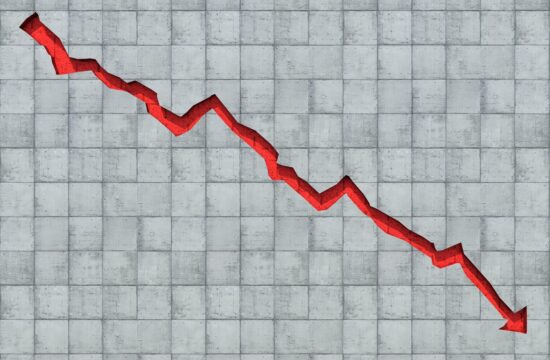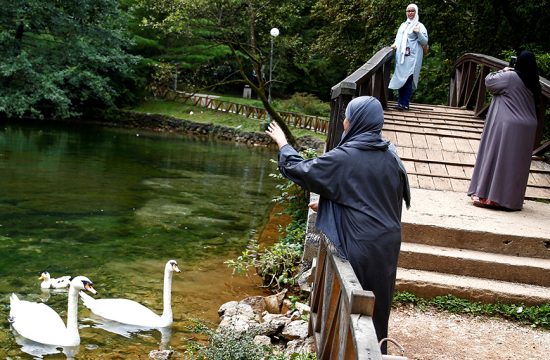
The Night Wolves, a controversial Russian motorcycle club endorsed by Vladimir Putin, have been touring Serbia and Bosnia and Herzegovina, raising concerns in the later over the true meaning of their visit.
On March 20, about twenty of them were held for some 40 minutes at the Bosnia-Serbia border as they were entering the country without their leader – Alexander “the Surgeon” Zaldostanov. He and another club member, Serbia-born Sasa Savic, have been banned from entering the country.
Earlier this month security minister Dragan Mektic labeled the visit of the group a threat to national security.
The group had announced their “The Russian Balkans” tour would last nine days starting March 19 and include Belgrade, Novi Sad, Valjevo, Krusevac, Nis, Jagodina, Kragujevac and Bela Crkva in Serbia, as well as Banjaluka, Bijeljina, Brcko and Doboj in Bosnia and Herzegovina's Republika Srpska.
The US Embassy in Bosnia and Herzegovina also expressed concerns about their tour.
“Such visits, which have a negative influence on stability, are not useful and should not be supported,” the Embassy said. “It is up to local authorities and the relevant institutions in Bosnia and Herzegovina to solve this issue. We appeal to the localauthorities to take all possible security threats seriously”, the Embassy told N1.
Some analysts say the Night Wolves have already begun developing relations with pro-Russian politicians in the Balkans.
“The visit is problematic, as this is a criminal paramilitary organization, a direct representation of the Kremlin, which is revealing ties to the openly secessionist regime of Milorad Dodik and the autocratic government of (Serbia's) President Aleksandar Vucic more and more,” Balkan analyst Jasmin Mujanovic told Newsweek.
Balkan Insight writes that the Night Wolves frequently attend nationalist rallies and are deeply involved in the structures of the Russian Orthodox Church.
The Night Wolves were blacklisted by the US in 2014 due to their involvement in activities which endanger piece, security, stability, sovereignty and territorial integrity of Ukraine during the Russian occupation of Crimea. They are also not welcome in some European countries.
This is a reason why the Night Wolves’ visit is negatively perceived in Bosnia and Herzegovina, according to the Director of Bosnia's Centre for Security Studies, Denis Hadzovic.
According to some information, the Kremlin is directly financing this project,” he said. “They are coming to an unstable country which is burdened by the inefficiency of it's government, the veterans’ protests and so on,” he said.
Hadzovic commended the reactions of local authorities and minister Mektic, saying they forestalled incidents that such a visit could produce.
“They were here before, this is not the first time. We need to look at the facts, there were no incidents, they visited religious objects and tried to improve the relationship between Russia and this part of the Balkans. They act legitimately,” Hadzovic said.
As Republika Srpska celebrated on January 9 it's disputed statehood day – which was banned by the Constitutional Court – its President Milorad Dodik awarded the Night Wolves for their efforts in strengthening the relations between Republika Srpska and Russia.
“Dodik wants to show how he has strong links to Putin and Russia and he wants to tell the public he is their player,” Hadzovic said.
Night Wolves member and chairman of the Russian motor-tourism federation, Yevgeny Strogov, said that in the past ten years the motorcycle club has been touring Slavic countries twice a year and that they are surprised by the situation their visit has prompted in Bosnia and Herzegovina.
“We are visiting Slavic countries, Serbia, Republika Srpska, Macedonia and Montenegro,” he said.
“Our main mission is to strengthen the spiritual connections between the peoples. We have a lot of friends in Serbia and Republika Srpska …. We visit monasteries of orthodox countries, buy icons and take them back to Russia. This is how we create spiritual connections,” he said.
“We were astonished by the situation here, the ban to enter the country and the political context. Truly, as Jesus Christ said, those who create piece, only they can enter the heavenly kingdom,” he said, adding “this is our mission.”




